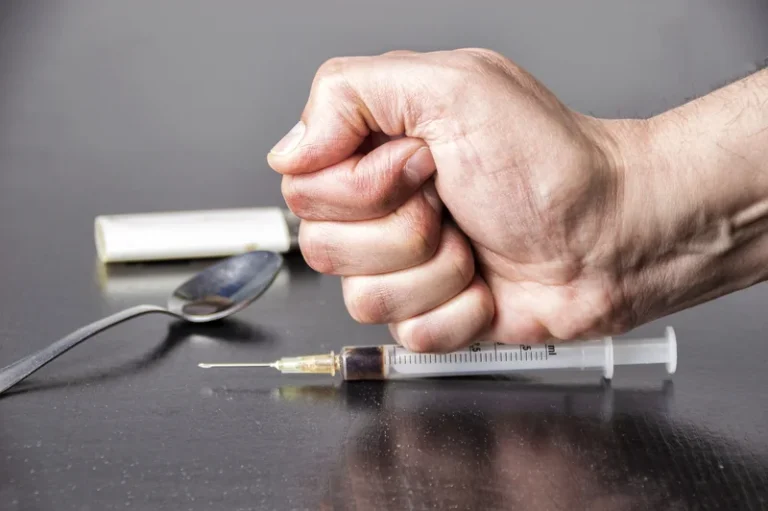
Treatment of AUD focuses on relieving symptoms of alcohol withdrawal in the short term and then suppressing alcohol cravings in the long term. Behavioral treatments—also known as alcohol counseling, or talk therapy, and provided by licensed therapists—are aimed at changing drinking behavior. Several evidence-based treatment approaches are available for AUD. One size does not fit all and a treatment approach that may work for one person may not work for another. Treatment can be outpatient and/or inpatient and be provided by specialty programs, therapists, and health care providers. A health care provider might ask the following questions to assess a person’s symptoms.

Special Health Reports

It also makes someone more likely to die in a car wreck or from murder or suicide. And any alcohol abuse raises the odds of domestic violence, child abuse and neglect, and fetal alcohol syndrome. When healthcare providers screen for AUD, they look at drinking behavior patterns within the last year to determine a diagnosis. They use 11 criteria established by the DSM-5 to assess alcohol use severity.
- For over 20 years Dr. Umhau was a senior clinical investigator at the National Institute on Alcohol Abuse and Alcoholism of the National Institutes of Health (NIH).
- For more information about alcohol and cancer, please visit the National Cancer Institute’s webpage “Alcohol and Cancer Risk” (last accessed June 6, 2024).
- This disorder also involves having to drink more to get the same effect or having withdrawal symptoms when you rapidly decrease or stop drinking.
- If you think that you or someone you know may be drinking too much, ask your doctor about getting help – whether it’s from a therapist, psychiatrist, or other addiction specialist.
Treatment for alcohol use disorder
- Symptoms of alcohol use disorder can range from mild to severe.
- Alcohol use disorder (AUD), formerly known as alcoholism, may lead to various health complications.
- Talk to your healthcare provider if you’re under stress and think you may be at risk for relapse.
- About 62% of functional alcoholics work full time, and 26% possess a college degree or higher.
- Make your tax-deductible gift and be a part of the cutting-edge research and care that’s changing medicine.
Another sign of AUD is someone drinking alcohol even though it may affect an existing health condition. It may also lead to increased psychological distress among the partners and children of individuals with AUD. People with the disorder may recognize these issues are present but continue to drink alcohol. To determine whether a person has AUD, healthcare professionals refer to https://ecosoberhouse.com/article/sober-living-what-is-it-how-does-it-work-how-to-choose/ the criteria from the Diagnostic and Statistical Manual of Mental Disorders, 5th edition, text revision (DSM-5-TR). Alcohol use disorder (AUD) involves a pattern of alcohol use that causes problems that may include excess drinking and interference with relationships or work. Recognizing signs of AUD is the first step in getting treatment.

What is alcohol use disorder?
- Those who use alcohol may begin to show early signs of a problem.
- Relating to other people with substance abuse issues may help someone break through denial and begin to recover.
- Healthcare providers diagnose the condition by doing a physical examination to look for symptoms of conditions that alcohol use disorder may cause.
Psychological, genetic, and behavioral factors can all contribute to having the disease. While there’s no specific blood test that can diagnose an alcohol use disorder, certain lab results can point to chronic alcohol abuse and possible alcohol addiction. Health professionals sometimes prescribe medications to reduce the symptoms of withdrawal. Other medications can help you quit drinking by suppressing alcohol cravings or making you feel sick when alcohol enters your body.
- People who are addicted to alcohol may also show a deteriorating physical appearance from poor nutrition and personal neglect.
- In fact, the consumption of alcohol by pregnant women is the leading cause of preventable birth defects in the U.S., and it can cause a particular constellation of problems called fetal alcohol syndrome.
- Healthcare providers define AUD as a brain disorder that affects your ability to regulate or stop drinking alcohol despite adverse impacts on your mental and physical health and professional or personal life.
- Our state-specific resource guides offer a comprehensive overview of drug and alcohol addiction treatment options available in your area.
- Participation in support groups may help people develop strategies to deal with the urge to drink alcohol.

Alcohol use disorder is a pattern of alcohol use that involves problems controlling your drinking, being preoccupied with alcohol or continuing to use alcohol even when it causes problems. This disorder also involves having to drink more to get the same effect or having withdrawal symptoms when you rapidly decrease or stop drinking. Alcohol use disorder includes a level of drinking that’s sometimes called alcoholism. And their success may lead people signs of alcoholism to overlook their drinking.






